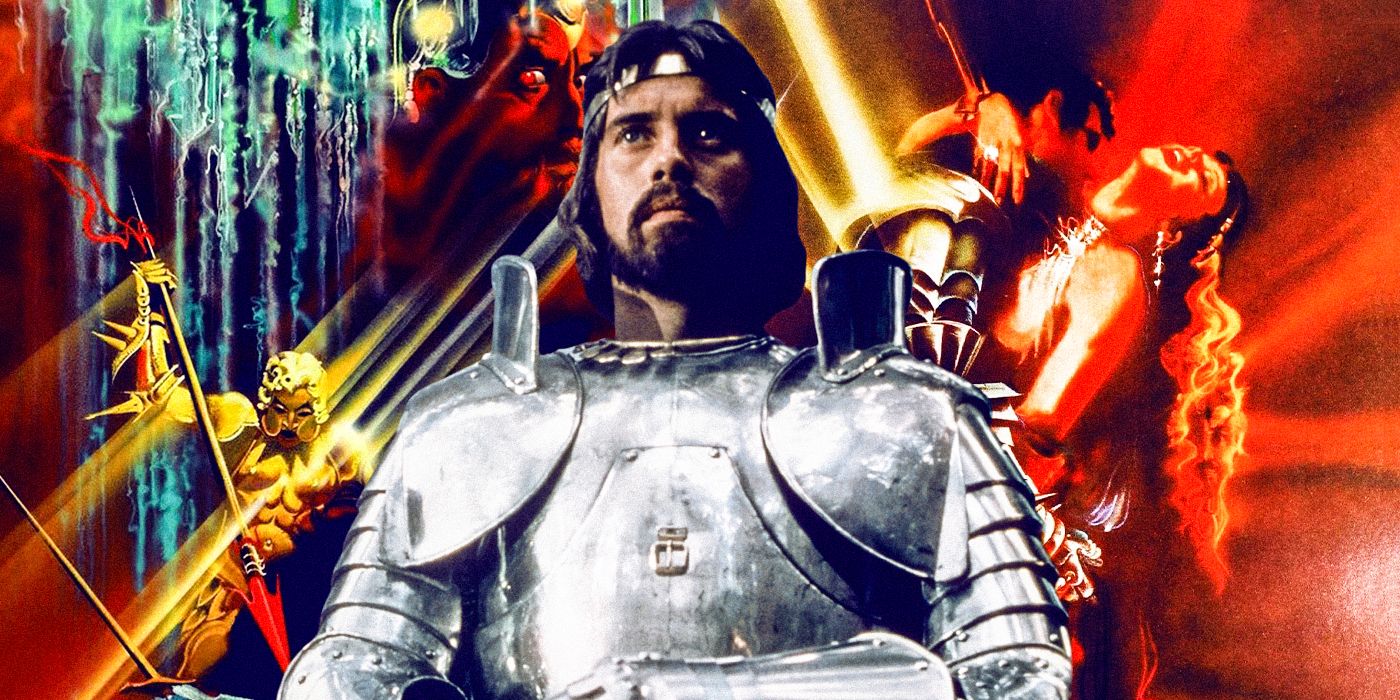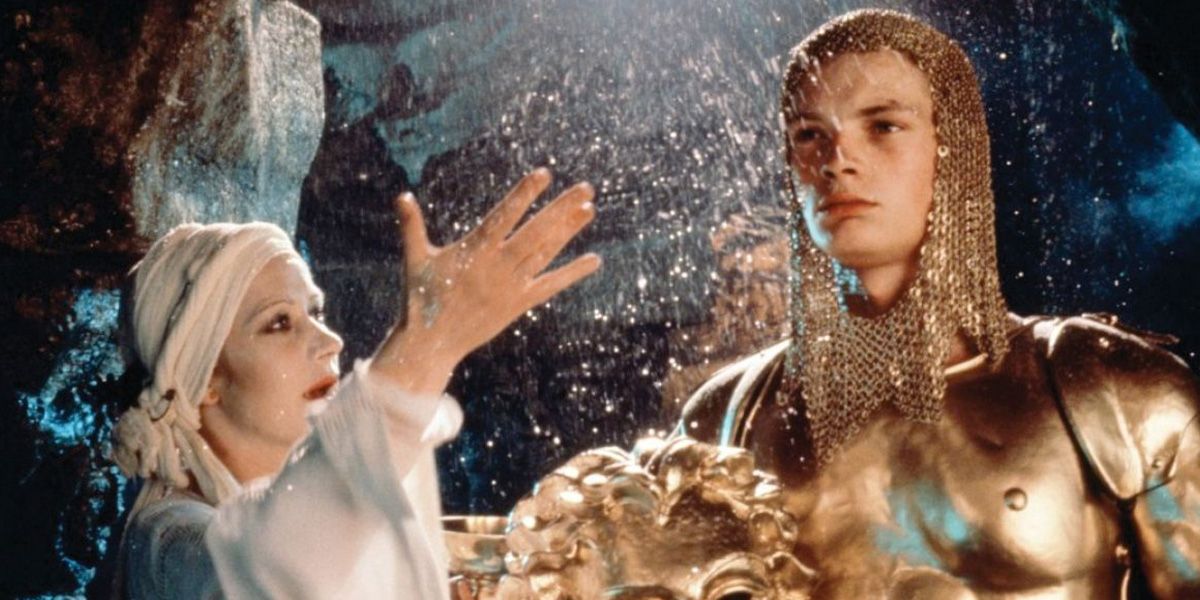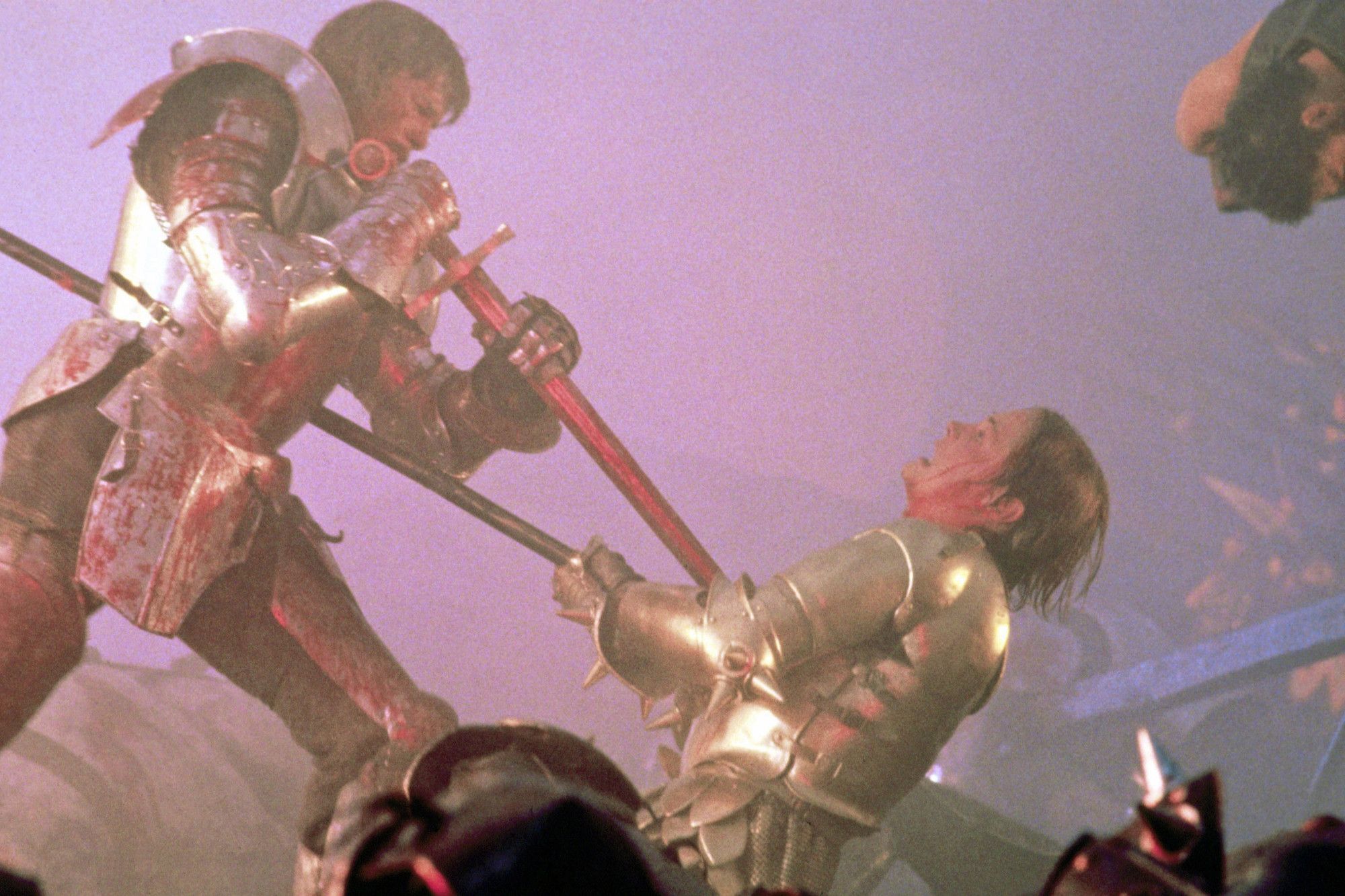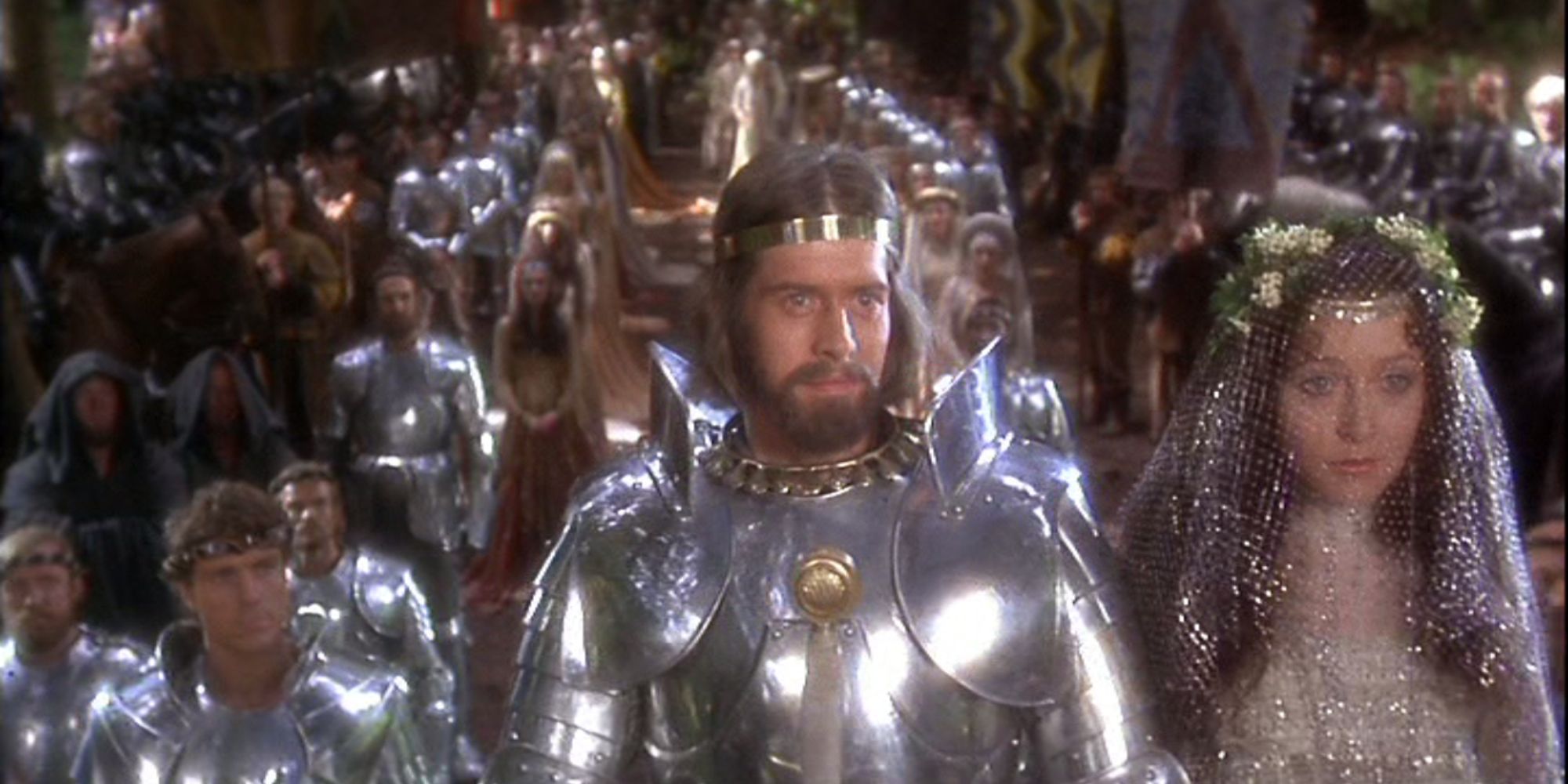By definition, fantasy stories can be as weird and wild as their creators want them to be. It’s one of the joys of the genre. Which is why it’s kind of a bummer that we’ve gotten so few envelope-pushing, adult-oriented fantasy movies over the years. Quick — name a good R-rated fantasy film. No, Game of Thrones and The Witcher don’t count; those are TV shows. I’m talking about feature films made for the big screen here. Okay, maybe you came up with Guillermo del Toro’s Pan’s Labyrinth or John Milius’s Conan the Barbarian. Sure, those would qualify. Although Conan was followed up by a watered-down PG sequel, and Pan’s Labyrinth could be lumped into that category of “horror films that have a fantasy bent.” (See also: “Action films that have a fantasy bent,” where the Highlander franchise largely lives.)
But pure, unadulterated R-rated fantasy films, especially of the high-fantasy, sword-and-sorcery variety, are harder to come by, as Hollywood tends to envision these things as family-friendly, PG-13 affairs. That could be why people were so excited for The Green Knight — David Lowery’s 2021 medieval epic that flew its fantasy-freak flag proudly. And I also think it’s why whenever one of these movies does find its way out into the world, it inevitably gets compared to John Boorman’s Excalibur — the 1981 retelling of the King Arthur legend that crams its 141 minutes with as much violence, lust, and utter strangeness as Boorman could muster. And yet it’s all crafted so beautifully and distinctively that, 40 years later, Excalibur stands as its own version of Camelot — a shining achievement that anyone else who gets an R-rated fantasy film made is trying to beat. Good luck with that.
Why 'Excalibur' Stands out in the Fantasy Field
Just for starters, it’s hard to approach Excalibur’s scope. Boorman’s film is an adaptation of Le Morte d'Arthur, Sir Thomas Malory’s 15th-century compilation of various Arthurian myths, and it spans decades. The movie leads off with a 23-minute prologue that chronicles the downfall of Uther Pendragon (Gabriel Byrne), who was given Excalibur, the mystical sword of kings, by the wizard Merlin (Nicol Williamson) to unite various warring factions and bring peace to the land. Uther eventually screws it all up by falling in love with the wife of a rival nobleman, and, before long, the world is again kingless and in ruin. Cut to many years later, when Uther’s son Arthur (Nigel Terry) frees Excalibur from the stone it has been trapped in and sets out to create the utopia his father could not. From here, the film touches on all of the beats you’d expect — Lancelot, the Knights of the Round Table, Guinevere, Camelot, etc. Years pass, and it looks like a happy ending could be coming for all. But, as Merlin warns, evil hides “where you never expect it.” An illicit love affair takes root, and Arthur’s half-sister Morgana (Helen Mirren) starts skulking around the edges of the film. She uses magic to trick her brother into impregnating her, and the movie jumps forward in time again, to set up a battle between an aged Arthur and his cold-blooded son Mordred (Robert Addie), who intends to take the throne by force.
It’s a lot, and there’s still so much I haven’t even mentioned. New and important characters are introduced throughout the film’s entire run time. The final third of the movie, which twists the narrative into a macabre nightmare, partially details a haunting quest for the Holy Grail being undertaken by Perceval (Paul Geoffrey), a character who isn’t even introduced until the film’s halfway mark. It’s truly epic filmmaking that has no interest in honing in on specific aspects of the Arthur legend or paring it down into a more easily digestible narrative. You get all of it smashed together in a fever-dream mishmash of swords, sex, and sorcery.
'Excalibur' Is Still Affecting Today
Watching Excalibur today, there is much that stands out. The movie is gorgeous with Boorman and cinematographer Alex Thomson using Ireland’s natural beauty as well as bold (and often green-colored) lighting to build a lush and vibrant world. The music is a frenzied and triumphant combination of various Richard Wagner operas (most notably “Götterdämmerung”), Carl Orff’s 1937 cantata “Carmina Burana,” and Trevor Jones’ own original score. (Just try not to get goosebumps when, following a battle scene that is devoid of musical accompaniment, the strings and horns kick in right as a rival warrior named Uryens knights a kneeling Arthur who has freely given up his sword.) The battle scenes are brutal, bloody, and lumbering. Don’t expect any flashy sword choreography here. In Excalibur, the armor everyone is wearing looks unbearably heavy, and the best way to defeat a man in battle is to whale on him with a mace until he physically can’t stand anymore.
The performances range from colorfully compelling to memorably eccentric, although all are delivered with an arch theatricality that one would expect from a cast mostly made up of British stage actors. Williamson delivers hammy lines such as “A dream to some, a nightmare to others!” without bothering to ground himself in the least. At first, Terry seems a little out of his depth playing a young Arthur, but he grows into the role nicely as the character ages. Future stars Byrne, Patrick Stewart, and Liam Neeson are showy in smaller parts. It all ends up working in the context of the film, which at times feels like a stage play about some secret history brought to kaleidoscopic life.
'Excalibur' Does Have One Downside
Excalibur’s biggest demerit is that, with one major exception, it doesn’t think much of its female characters. Igrayne (Katrine Boorman, the director’s own daughter) is introduced in the prologue, raped by a magically disguised Uther, and then discarded once the main plot is set in motion. Guinevere (Cherie Lunghi) is largely around just to drive a wedge between Arthur and Lancelot (Nicholas Clay). Thank god then for Morgana, who, in the second half, becomes the film’s primary antagonist — an up-and-coming sorceress with a beef against Merlin, the man who has spent most of the movie manipulating her family to serve his own ends. Morgana is a well-rounded villain given a legitimate viewpoint, and Mirren unsurprisingly plays the hell out of her. It’s one of her fiercest performances.
Excalibur’s influence has remained steady throughout the years. You can feel it when you watch Peter Jackson’s The Lord of the Rings trilogy, which uses light and natural settings in similar ways. (Fun facts: Boorman once planned to shoot his own version of J. R. R. Tolkein’s opus although it ultimately fell apart, and the first teaser for Jackson’s trilogy used the same movement from “Carmina Burana” that is featured so heavily in Excalibur.) Just recently, Zack Snyder recycled the same Excalibur-used pieces of “Götterdämmerung” for his zombie opus, Army of the Dead. Not a huge surprise, as Snyder has called Excalibur his favorite film.
Lowery wasn't as blatant in name-dropping it as he promoted The Green Knight. Although a Vanity Fair profile did indicate that Excalibur was one of the films on his mind as he tackled his own fantasy epic for grown-ups. Honestly? It would have to be. Excalibur looms over the genre like Merlin’s fabled, all-encompassing dragon. When fantasy films had a bit of a boom in the early 80s, a few other R-rated ones did make it to release, but you don’t really hear anyone talking about Deathstalker or Sorceress all these years later. It’s Excalibur that has stood the test of time, waiting for another film to come along and dethrone it just as the sword itself waited in the stone. Godspeed to Lowery or anyone else who dares to undertake that quest.




